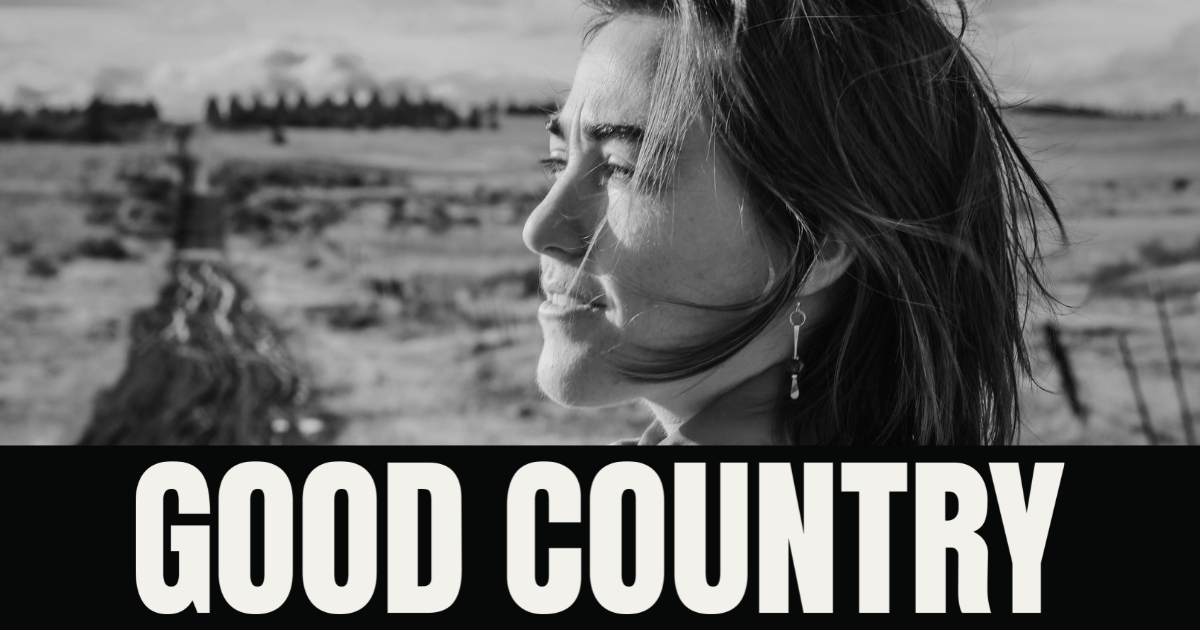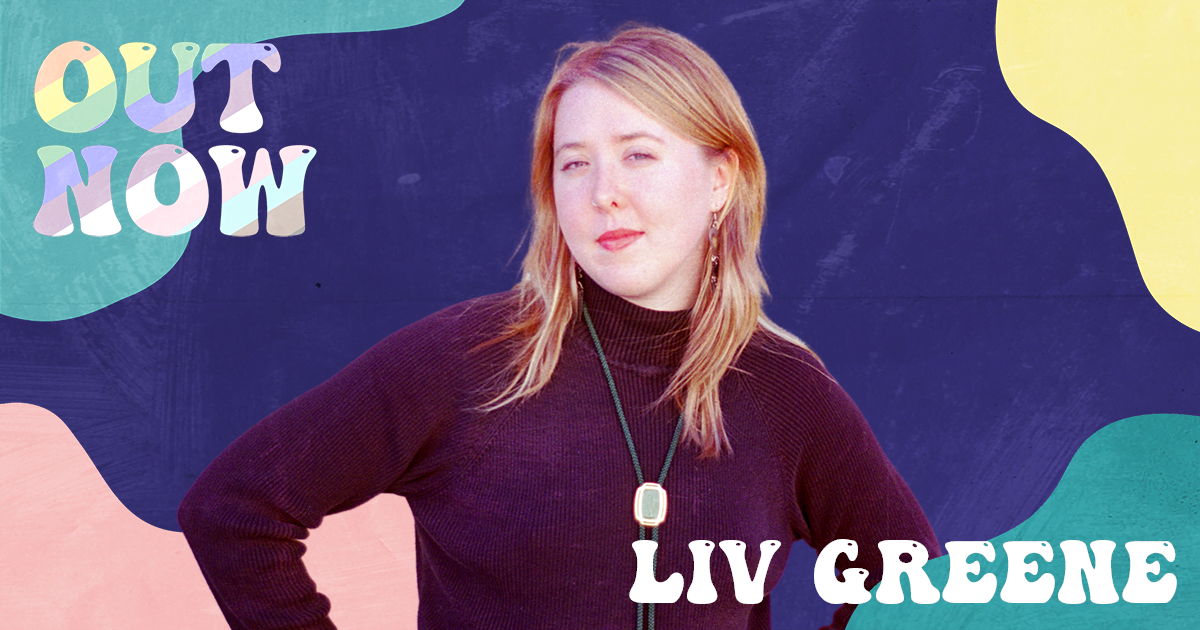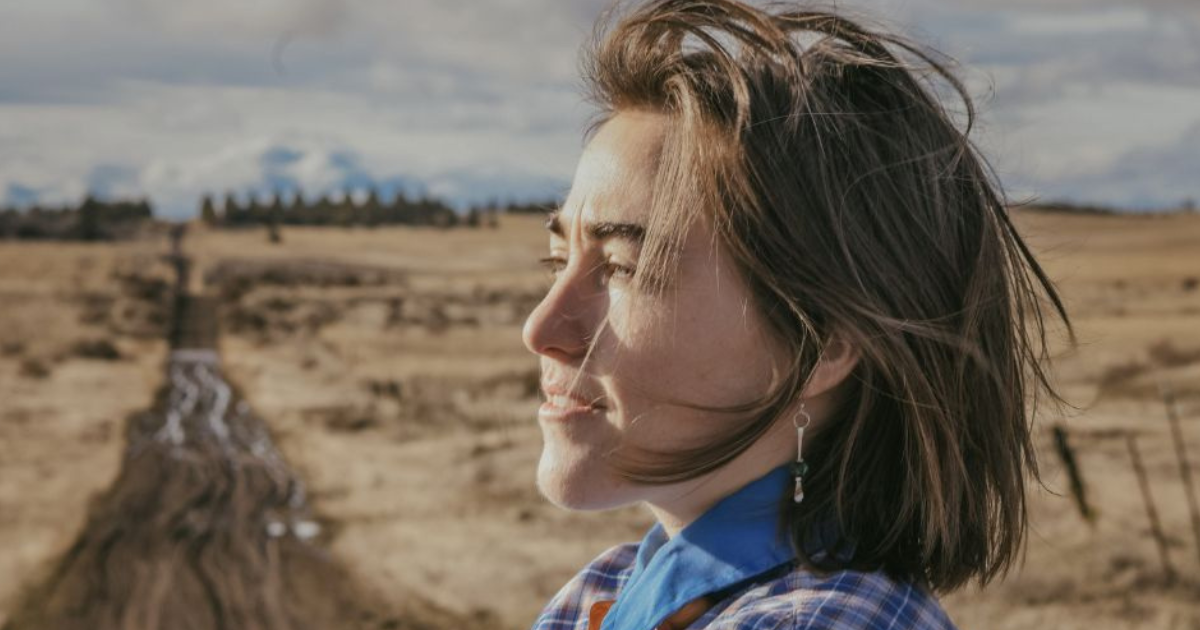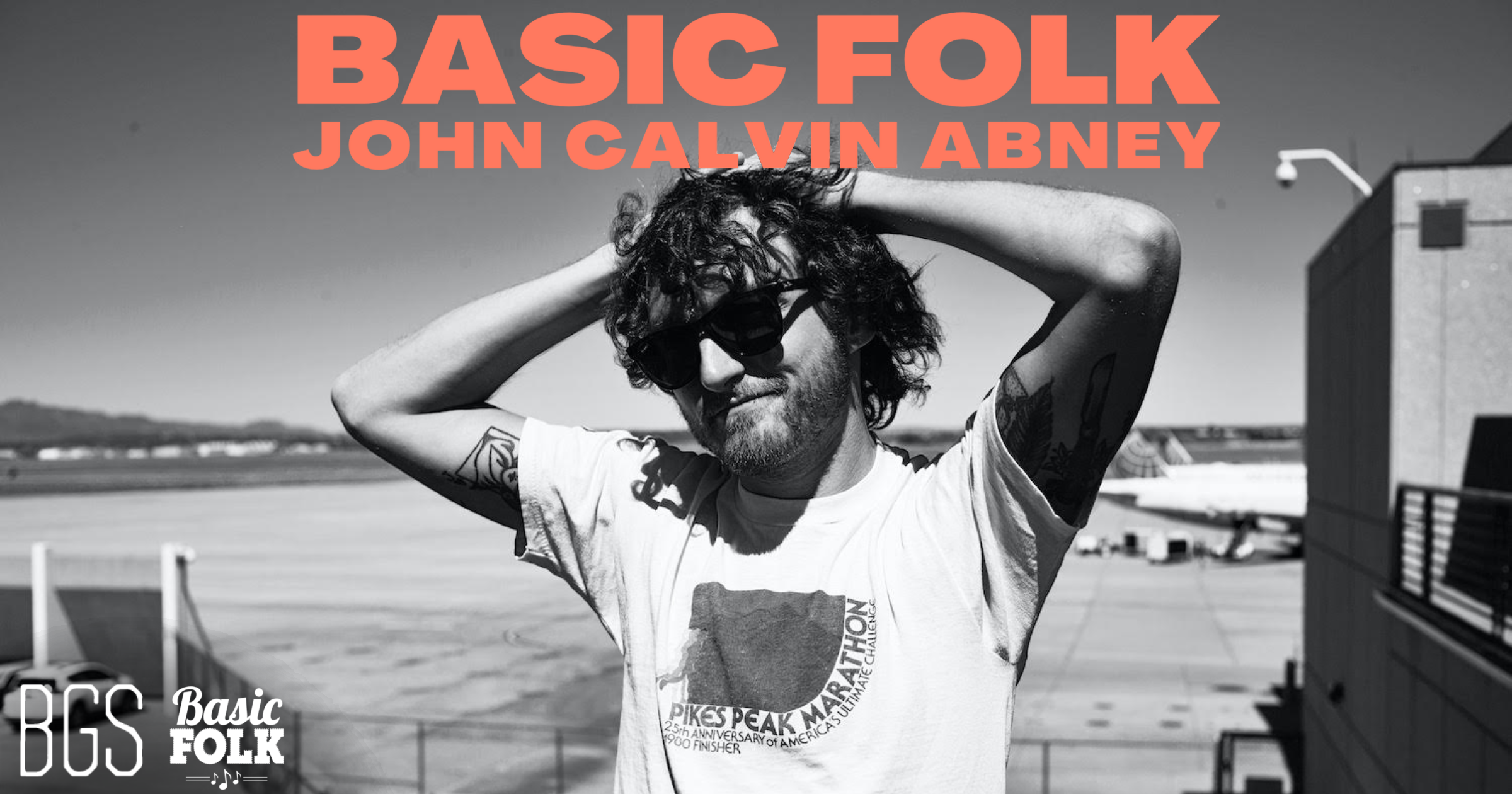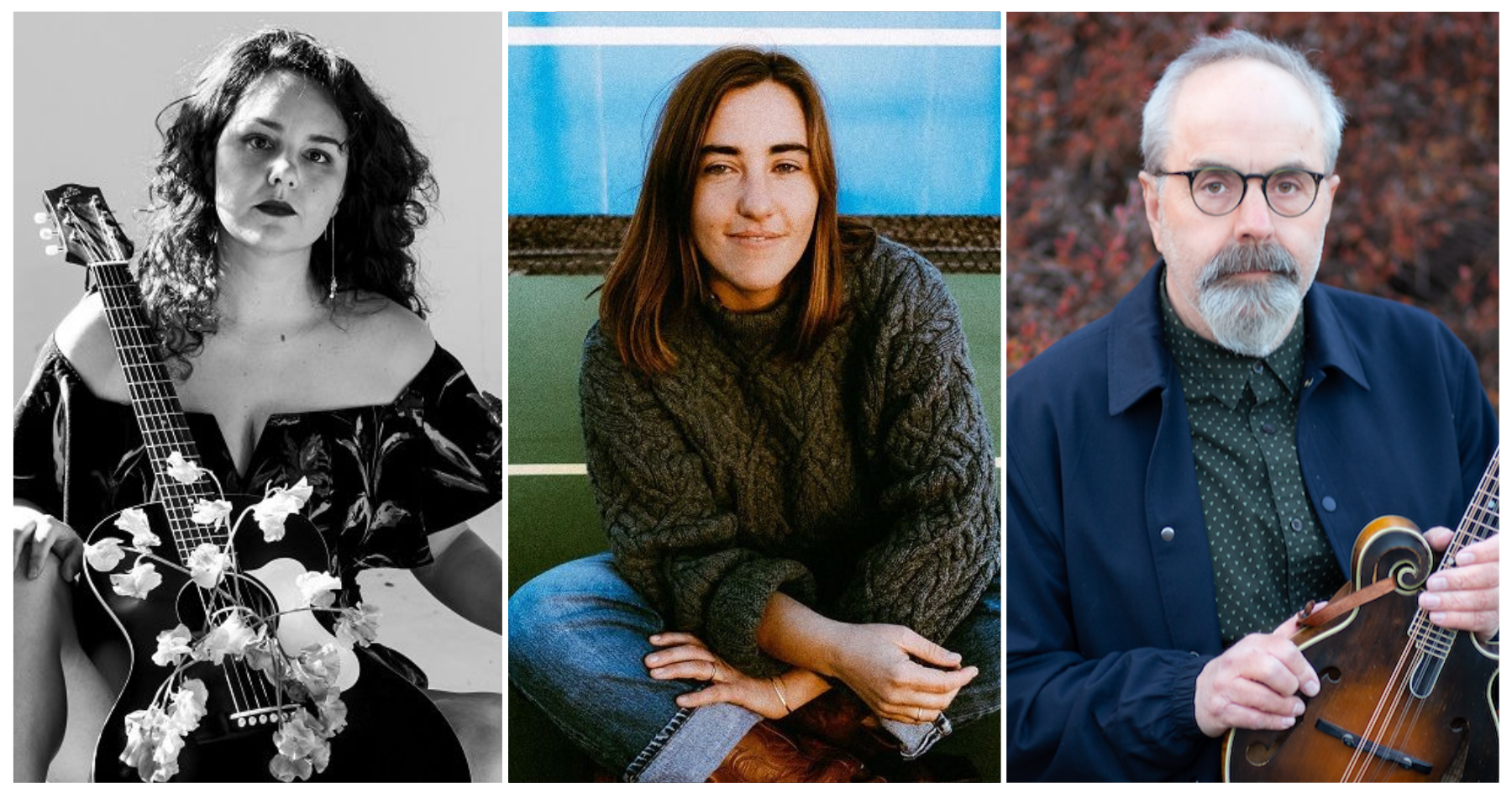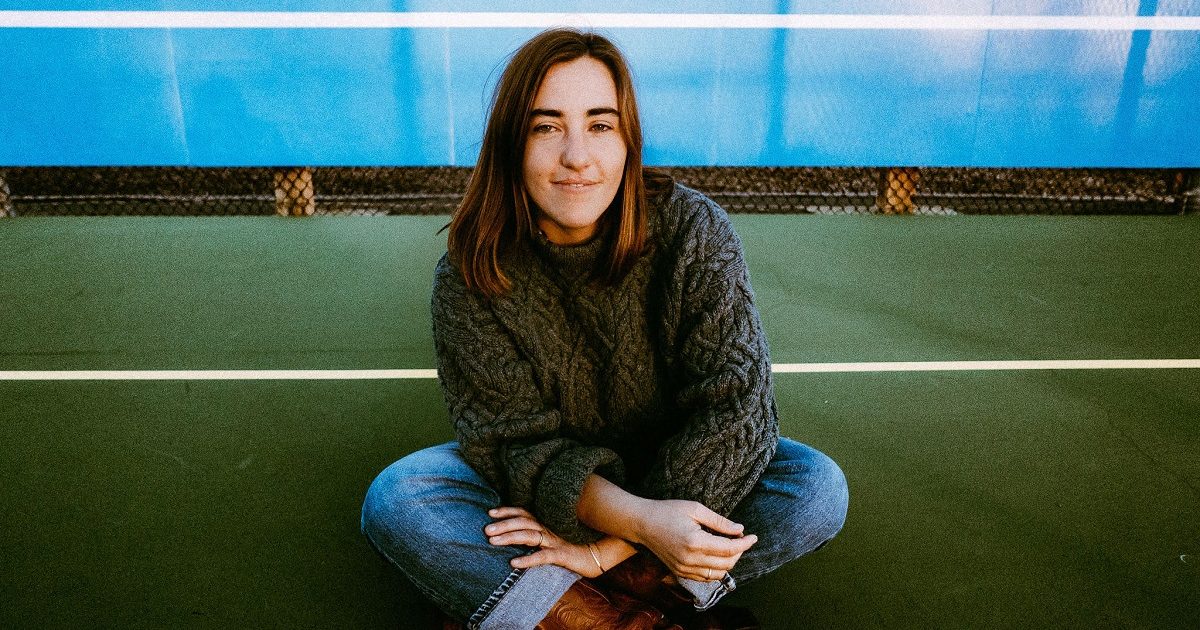(Editor’s Note: Sign up here to receive Good Country issues when they launch, direct to your email inbox via Substack.)
In country and roots music, authenticity is treated like the most valuable currency of all. Maybe that’s because the genre has always been caught between the fiction that this music is frozen in amber and the reality that it has always borrowed liberally from current musical trends in order to have commercial value. The earliest popular country music was an amalgamation of regional music from rural white artists, music stolen wholesale from Black and Indigenous artists, and plenty of nods to prevailing pop (i.e., urban or non-rural) trends – looking back at the places young laborers and listeners that had been drawn to cities came from, and the exciting present and future they found themselves in once they arrived.
Can anyone or anything truly be considered “authentic” in America, a country whose identity is built on masking fundamental historical truths?
While artists like Zach Bryan are hailed for their “authenticity,” the vast majority of the current class of mainstream country and Americana artists grew up in suburbs, in postmodern America, in the internet age, and are graduates of major colleges – like Nashville’s Belmont University or Boston’s Berklee College of Music. Their experiences are also authentic, of course, to each individual artist – just as Bryan’s initial motel room demos are electrifying for the soul he brought to them. But these origins bring up questions around how country and Americana construct “authentic” narratives, especially to market roots music.
Still, it’s noticeable that certain types of creators are automatically considered “authentic” country artists – and they often match the complexion of the first generations of country singers, when “race records” and “hillbilly music” were originally split and whose most famous individuals wore cowboy cosplay on stage.
We want to tip you off to some real Good Country music: Music that portrays life in its complexity and a deep appreciation for one’s roots, whether they lie in the Bronx, rural Arkansas, or anywhere else on this rich blue marble we live on. Because authenticity in country doesn’t necessarily equate to rurality, to back roads and red dirt and farm trucks; real country music is real not because it’s built to be “authentic,” but because it’s honest.
Hurray For the Riff Raff
Hurray For the Riff Raff’s Alynda Segarra is from a little bit of everywhere, but the Bronx is where they grew up and the punk houses of the Lower East Side raised them. Between their jazz artist father and picking up a guitar as they rode the rails, Segarra’s approach to folk music began with a traditional bent and has since exhaled into an expansive approach, as with their astonishing 2022 album Life on Earth. Their upcoming album The Past Is Still Alive finds Segarra focusing more on twang, but their philosophical core has always remained the same: breathing life into unspoken pain and empowering people that society would like us to forget.
Amythyst Kiah
Amythyst Kiah’s music is a powerful force. Inspired by the blues and old time music, Kiah uses her art to prop the furnace doors open to make way for blasts of grief and abandonment. Kiah grew up in Chattanooga, Tennessee and picked up the guitar while attending an arts magnet school. She fell in love with old time music at East Tennessee State University and never looked back.
I first saw Kiah in 2016 at Karen Pittelman’s Queer Country Quarterly, her first show in NYC. Karen introduced her by remarking, “trust me, she’s going to be famous.” When Kiah belted her powerful alto, we all knew we were in the midst of greatness. Kiah’s most recent work on Wary + Strange (2021) takes us in a more experimental direction, but her exploration of alienation – like a toy in her hands – informs her music no matter what she’s plugging into her pedalboard. Kiah’s “Black Myself,” originally recorded with supergroup Our Native Daughters, fiercely proclaims her love for herself and her ancestors.
Willi Carlisle
Willi Carlisle has seen a thing or two in his travels across the lower 48. Carlisle cut his teeth musically in DIY and punk rock, but his search for queer role models and love for poetry drew him to New York City. With disgust for the elitism of the poetry scene there – and their mockery of his roots in the Midwest – Carlisle went searching for a life of words in folk music.
Carlisle has a knack for painting complex portraits of down-and-out characters, refusing to be drawn into simple narratives of left and right, red and blue. His stunning “When the Pills Wear Off” from the upcoming Critterland demonstrates Carlisle’s ability to turn the personal into the political – and back into the personal again. This is not the blind invective of JD Vance, but the realization that only empathy can build bridges between people who think they have nothing in common.
(Editor’s Note: Willi Carlisle is BGS’s February 2024 Artist of the Month.)
ISMAY
ISMAY (née Avery Hellman) has spent their whole life around folk and bluegrass music – their grandfather is one of the founders of the Hardly Strictly Bluegrass festival. As a contestant on Apple TV+’s short-lived My Kind of Country competition series, ISMAY is very much a representative of roots music’s vanguard. With their sparse arrangements and winsome vocals, ISMAY’s music feels like deconstructed folk music. They understand the core elements of the sound thanks to a lifetime immersed in it, and they create something wholly unique from its constituent parts, as we hear on “Point Reyes.” There, ISMAY’s contemplative vocals are orbited by a gauzy cloud of pedal steel and gentle finger-picking. ISMAY’s upcoming album Desert Pavement speaks to their sense of place: all of their music is enamored by nature. “Golden Palomino” illustrates ISMAY’s love for their rural California upbringing, guiding us to realize how much our natural and inner worlds inform each other.
Buffalo Nichols
You’d be hard-pressed to find a more devastating songwriter or guitar player than Buffalo Nichols. Nichols, like many teenagers before him, picked up a guitar and played his way through the hip-hop and hardcore scenes in his Milwaukee hometown. He found himself drawn to blues music as he began to dig into his mother’s collection and connect with Cream City’s West African community. Nichols and musical partner Joanna Rose made a mark on the Americana scene with their duo Nickel and Rose, shining a harsh light on the ignorance on full display in the community’s supposedly liberal refuge on the song “Americana.”
With his most recent solo album The Fatalist, Nichols brings all of his experience to bear on a remarkable collection of songs that combine elements of all of his musical loves. On his rendition of the classic “You’re Gonna Need Somebody On Your Bond,” Nichols’ guitar becomes an extension of his own body with lightning-fast licks. Buttressed by electronic drum samples and a haze of synths, Nichols shows that music is at its most vital when it is rooted in the past and embraces the future.
Ally Free
Ally Free is one to keep your eye on in 2024. They write in their bio that they see music as the universal language that can bring people together, and that’s clear on their versatile 2019 album Rise. From the nu metal-inspired chugging of “Fool’s Gold” to the craftsman’s approach to “Fast Train,” Free isn’t embarrassed to draw from any inspiration to make a damn good song. Free’s rich alto gives their music depth: from their performances, it’s clear that this is someone who has lived a lot of life. Free is one of the newest members of the Black Opry and has taken a few steps out of their Huntsville, AL hometown to playing more shows around Nashville. Here’s hoping that means the rest of us get to hear more from this remarkable performer soon.
William Prince
William Prince’s voice carries a warm, earthy timbre that is wholly unique. Prince grew up on Peguis First Nation (in what is now Canada) and is well-versed in the travails of people living under oppression. But that experience is translated into patience and warmth, a gentle perseverance that can only come from a keen observer. Prince’s stark breakout album Reliever (2020) has given way to the warm Stand in the Joy (2023), which details the travails and victories we most often find in daily life. “Tanqueray” is a gorgeous example of Prince’s dynamic, a story of two improbable lovers finally coming together to make it work.
Sabine McCalla
Sabine McCalla is readying for a breakout 2024. McCalla’s music is steeped in the sounds of New Orleans, which she has made her home. McCalla has performed with others, but her performance on Offbeat Magazine’s OnBeat Session from September 2023 shows us she’s ready to step out on her own. For now, we have her 2018 EP Folk, which sports arresting songs that feel timeless. Maybe it’s the gentle groove in her music that feels like the stately flow of the Mississippi River – discordant with the immediacy of her lyrics that protest violence and oppression, as demonstrated by “I Went to the Levee.”
Margo Cilker
Look – Margo Cilker is literally a cowboy, okay?? Isn’t that what you imagine when someone mentions “country music” and “authenticity” in the same breath? But Cilker’s music glorifies a life of searching, not a mythologized America of white picket fences, so you can also picture the quintessential Nashville executive saying, “We like cowboys, but no, not like that.”
Cilker’s latest album, critical darling Valley of Heart’s Delight, is nostalgic for her family orchard in California’s Santa Clara Valley – but not without a heavy dose of reality. “Mother Told Her Mother Told Me” caution the listener not to become too attached to any one place – and the cost of leaving it behind. Cilker’s impassioned “With The Middle” cuts to the core of her work – a weighing of the contrasts between pleasure and pain and yearning to find common ground between the two.
Brittany Howard
Brittany Howard transcends pretty much everything – except the act of exploration with wild abandon. Having gained notoriety as the lead singer of the retro soul band the Alabama Shakes, Howard seemingly will not rest until she’s drawn with every musical crayon in the box. In her recent interview with NPR’s Jewly Hight, Howard cracks that she grew up in a trailer and would still be perfectly content to be working the land somewhere. But her music has led her elsewhere, perhaps everywhere. Howard has teased a few songs off her upcoming album, What Now, with the title track featuring hooky grooves and propulsive energy, but it’s “Red Flags” that astounds with its jarring drum loop, woozy vocals, and disorienting production that demonstrates how much mastery Howard has gained in her craft as an artist and storyteller.
Samantha Crain
Few artists in the last decade have shown the same growth and versatility as Samantha Crain. A part of the rich Tulsa music scene that has given us John Moreland, John Calvin Abney, and M Lockwood Porter, Crain follows a road all her own. Under Branch & Thorn & Tree (2015) found Crain exploring the pride and trauma of her Choctaw heritage through folk-inspired music. In 2017, Crain broke her own mold with the quirky indie-pop album You Had Me at Goodbye (2017.) Since her 2020 album, A Small Death, Crain has been playing in the spaces in between, utilizing woodwinds, pedal steel, pianos, and guitar to create a woozy soundscape as her spacious, gravelly voice helps us stay anchored in the real.
Nick Shoulders
Nick Shoulders rounds up the list with his commanding All Bad. While Shoulders’ music leans traditional sonically, it’s anything but. The Fayetteville, Arkansas singer begins his album with phaser blasts and a menacing invitation to a “conversation,” and that conversation is explicitly about all the “country” stylings that deserve to be thrown in the trash heap – and the many, many qualities we need to hold on to and claim for ourselves: grit, honesty, love, and togetherness. “Won’t Fence Us In” and “Appreciate’cha” speak to this theme most clearly, but the way Shoulders approaches the classic country canon with loving irreverence reminds us that we never have to be weighed down by tradition.
Photo Credit: Margo Cilker by Jen Borst.
